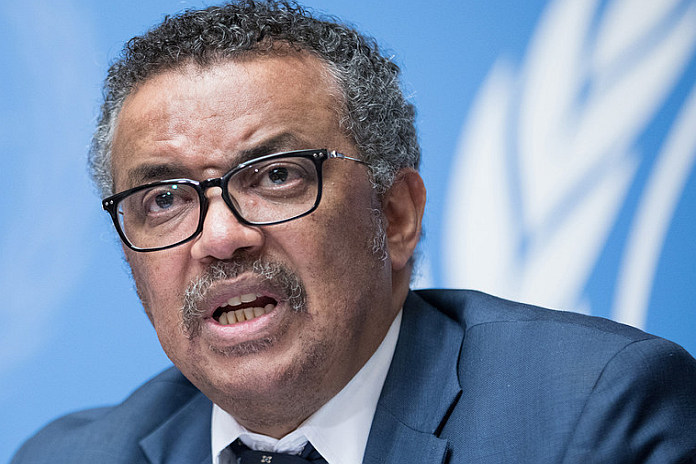GENEVA, Switzerland, (UN News) — Sixty days after the genetic sequence of COVID-19 was shared by China, the first vaccine trial has begun, Tedros Adhanom Ghebreyesus, director-general, World Health Organisation (WHO) said on Wednesday, calling it “an incredible achievement” and urging the world to maintain “the same spirit of solidarity” that has helped fight Ebola.
He explained that because multiple small trials of the coronavirus vaccine with different methodologies may not provide the evidence needed, WHO and partners are organizing a study to compare untested treatments throughout several countries.
“This large, international study is designed to generate the robust data we need to show which treatments are the most effective”, said the WHO chief. “We have called this study the SOLIDARITY trial”.
Currently, Argentina, Bahrain, Canada, France, Iran, Norway, South Africa, Spain, Switzerland, and Thailand have confirmed that their participation.
One week since COVID-19 was declared a pandemic, cases continue to soar, roughly half the world’s student population is not attending school, parents are working remotely when possible, borders have been closed and lives have been upended.
“These are uncharted waters for all of us”, said Henrietta Fore, executive director of the UN Children’s Fund. “At UNICEF, we are fighting a new virus, debunking myths and battling misinformation, all while looking after the well-being of our staff and our own families”.
UNICEF is helping to prevent the spread of the virus among communities in the affected countries by sharing accurate information on how to keep families safe and mitigating the impact of the outbreak on children’s access to health, education and social services.
“Now more than ever, we count on our donors to continue supporting our mission for those with nothing and no one – despite these difficult times”, Fore said.
As the world embarks on the Decade of Action for the Sustainable Development Goals (SDGs), Mona Juul, president of the Economic and Social Council, stressed: “We must always ensure that the health and safety of people is our first priority”. And in light of the COVID-19 pandemic, she decided to postpone the UN75 Youth Plenary and ECOSOC Youth Forum and proposed cancelling all ECOSOC meetings over the next eight weeks.
“Given the rapidly evolving situation, it is clear that we need to remain flexible”, she said, noting that ECOSOC is exploring virtual options and solutions.
Meanwhile, the secretary-general’s spokesperson announced that he would conduct the daily press briefings remotely as the UN Security and Safety Service in Vienna reported today that 95 percent of staff there were telecommuting. At the same time, as governments worldwide are relying on people to stay home to prevent the spread of COVID-19, a UN expert shined a light on those without a home, saying that they must be ensured access to adequate housing.
“Home has rarely been more of a life or death situation”, said Leilani Farha, UN Special Rapporteur on adequate housing, adding that it has become “the front line defense against the coronavirus”. She explained that some 1.8 billion people globally live in homelessness and grossly inadequate housing, often in overcrowded conditions, lacking access to water and sanitation – making them particularly vulnerable.
The expert urged States to “take extraordinary measures” to secure the right to housing for all to protect against the pandemic. A few countries have already stepped up, including by putting moratoriums on evictions or deferring mortgage payments for those affected by the virus while others have increased access to sanitation and emergency shelter spaces for the homeless.
“By ensuring access to secure housing with adequate sanitation, States will not only protect the lives of those who are homeless or living in informal settlements but will help protect the entire world’s population by flattening the curve of CV19,” the UN expert concluded.





